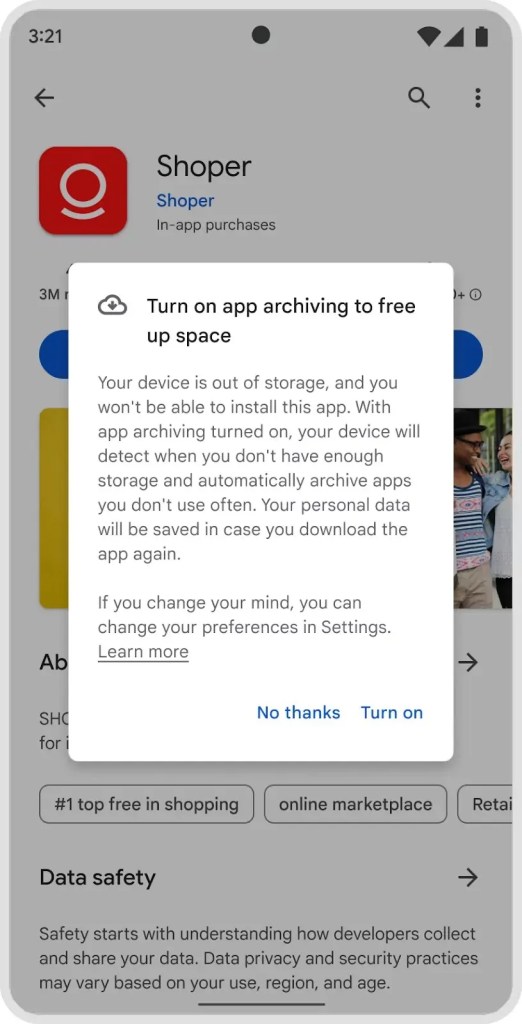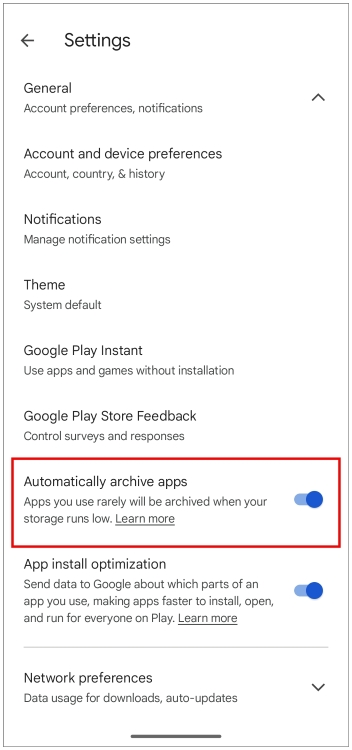Storage has been a big issue for longtime smartphone users who don’t upgrade their devices every year or two. This problem has only gotten worse with OEMs ditching the storage expansion slot and ever-increasing resolution of photos and videos. But Google seems to be working on a solution as Android 15, the next new version of Android, could allow system-level app archiving.
As reported by Android expert Mishaal Rahman, Android 15’s list of features may include app archiving within Android settings, which allows you to archive apps you don’t use often. This will save you space and the hassle of reinstalling the whole thing because your data will remain intact. You can tap the app icon to unarchive it and start using the app as if you never left it. If this sounds familiar, it’s because iOS already has a similar feature called Offload that works the same way.
What is application archiving?
Archiving an application means removing part of the database

This additional APK is also installed on your device with the rest of the app. When the app is archived, it leaves only the archived APK file on your device. This file is quite small as it only contains the app icon and the code to reinstall the app from the Play Store.
How might app archiving work on Android 15?
The feature is not entirely new. Google introduced archiving of applications in the Play Storestill in 2020. You could include Automatically archive applications feature within the General Settings of the Play Store. However, it didn’t work well because most of the unused apps might not be archived as you would expect. Additionally, there was no dedicated option to manually archive apps you don’t use.

This may change in Android 15 as the option to archive the application will be available on the application information screen within the Android system. You just need to long press the app and go to Application information > Archives. This action may take a second as Android uninstalls the base APK.
To restore an app, you can simply tap on the app icon and it will start reinstalling it. Your app data will remain intact during this process. Mishaal demonstrates this process in the following video.
In addition to allowing you to archive the app yourself, Android may introduce an option to do so automatically. You just have to turn it on Manage the application if not in use option. Doing so will archive the app if it hasn’t been used for a while. Third-party app stores and OEMs can also take advantage of this by supporting the Android App Bundle format.
This new feature will be useful for people like me who tend to install a bunch of apps only to try them once and forget about them later. With the 5G data speeds at our disposal, restoring apps shouldn’t take more than a few seconds if you decide to use the app again.
It looks like Android 15 will be an update focused on quality of life improvements. We’ve already seen one with a notification cooling feature in the first developer preview. What do you think about the arrival of app archiving on Android, share your thoughts with us in the comments below.